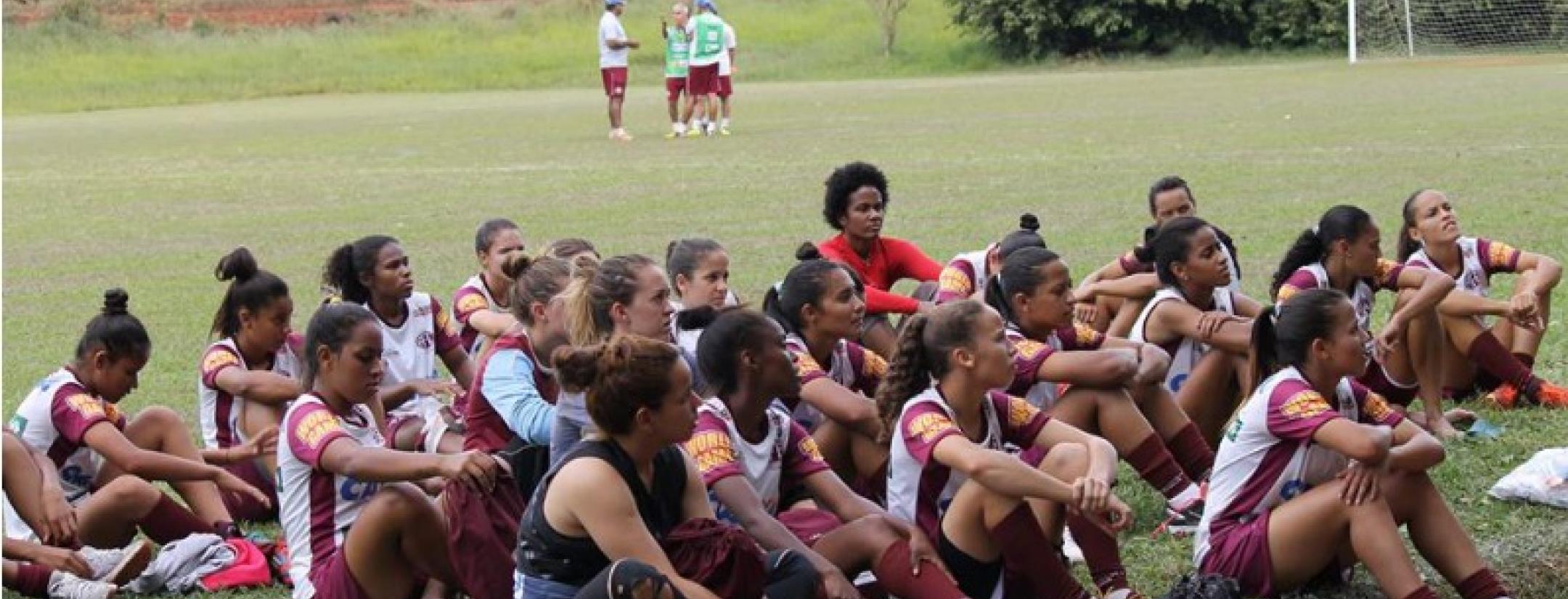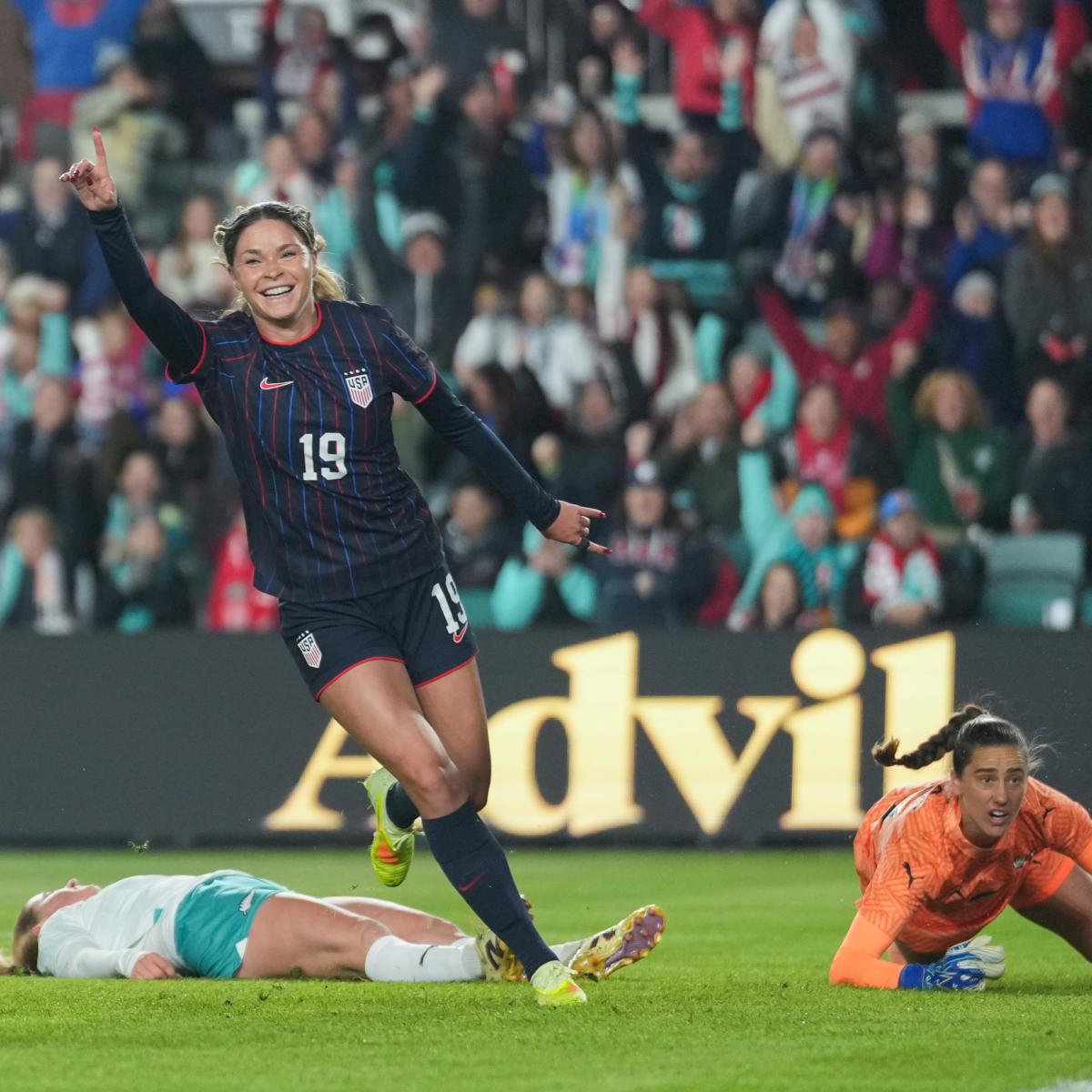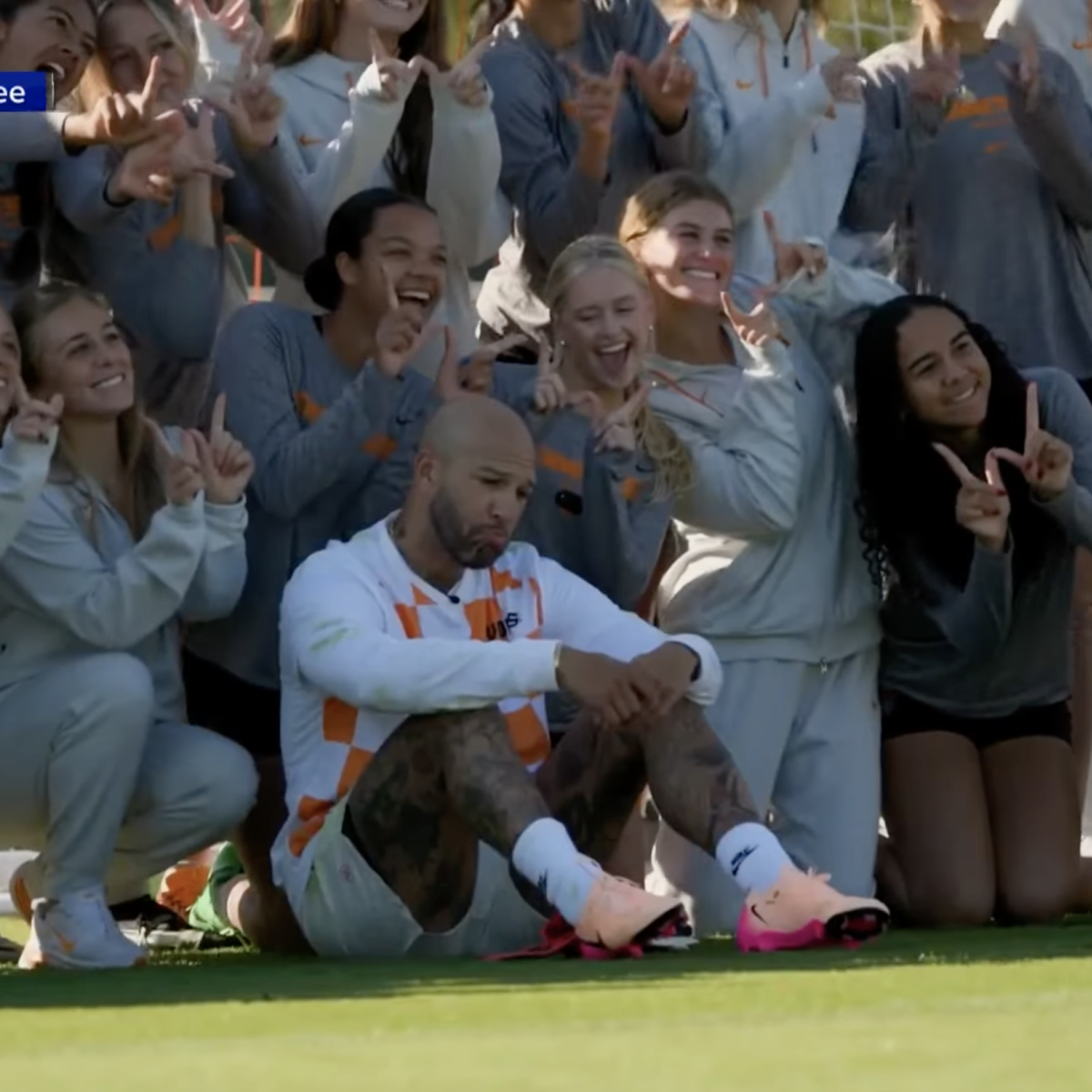Newspaper predictions from 1950 hypothesized that women of the year 2000 would be “more than six feet tall, wear a size 11 shoe, have shoulders like a wrestler and muscles like a truck driver. She will be doing a man’s job, and for this reason will dress to fit her role…Her proportions will be perfect, though Amazonian…She will go in for all kinds of sports…you’ll find the emancipated woman engaging actively in such sports as…soccer.”
Turns out there was some truth to these predictions, at least in the women kicking ass department. By the 2000s, Mia Hamm, Marta, Abby Wambach and Cristiane were household names countries around the world. Moreover, young girls continue to flock to the sport, women’s professional leagues have formed, and World Cup and Olympic titles are on the line. While they may not have turned into the Amazonians of lore, women players and teams are a reality and are here to stay.
However, while players like Mia and Abby grew up in a country where women had the support of their families and friends, Brazilian female players like Marta and Cristiane were not so fortunate. Instead, Brazilian culture strongly suggests that women not play soccer and their friends and family ridicule them for suggesting otherwise. In a country where 15 million girls are playing despite the objections, they have only one Olympic Training Center for the best of the best, and that single center is thought to be in jeopardy due to lack of funding.
Brazilian female players face an uphill battle, but they are not alone. An impressive cast of characters – from professional and university players, to women’s rights activists, to photographers, artists, and academics – are working together at the Guerreiras Project to make sure the next Martas and Cristianes realize their potential as both players and women.
Guerreiras, Portuguese for “female warriors,” has two women leading the charge. Co-founder Caitlin Davis Fisher is a former professional women’s soccer player and captained her team at Harvard. The other co-founder, Aline “Pelle” Pellegrino, also played professionally, not to mention, captained Brazil’s women’s national team for eight years. While both know their way up and down the pitch, they also bring a great deal of brainpower and determination to the table.
Fisher signed with Santos F.C. in 2004, the club made famous by Pele. Excited at the prospect of playing for such an illustrious club, imagine her shock when she learned the only commonality between the men’s and women’s clubs was the name Santos. Female players received different food than the male players, wore the men’s old – up to 7 years old – jerseys, walked hours to practice and washed their uniforms by hand in outdoor sinks. The women’s team was not allowed to use the men’s training fields, stadium or buses. And this in the nation of fútbol?
Upon sharing her shock with her Brazilian teammates, Fisher learned that while they all had their own stories of prejudice and inequality, they were simply happy to be allowed to play soccer at all. Turns out women in Brazil were banned from playing soccer for fun, in school or professionally from 1941-1979 since the sport was “incompatible with the female nature.”
The ban gave rise to a national belief that women were the weaker, and therefore, the less important of the genders. Brought up in this environment, other Brazilian female soccer players faced struggles of their own. The best players received US $150 a month to play for the big clubs; some of the players worked as cleaning women on the side in order to pay their bills. Female professional teams folded due to lack of sponsorship and clubs devoting their funds to huge contracts for the male players. Pellegrino never received a single endorsement, despite years of captaining the Brazilian’s women’s national team. Juliana Ribeiro Cabral, captain of the Brazilian women’s Olympic silver medal-winning team in 2004, played for several teams of models where the players were selected not for their skill, but for their beauty and long hair.
Both Pellegrino and Cabral reported not having the support of their own parents, even when they were playing as small children. Not even Marta was immune; the world’s best female player for five years running, was not formally coached until age 14 and had to leave Brazil to play in Sweden for better opportunities.
Based on these and many more struggles, the Guerreiras Project was born. The project strives to use soccer “to prove what women can achieve; inspiring them to use their own stories to explain that difficulties can be overcome.”
How are they doing it? By creating their own band of warriors, of course. Professional women’s soccer players are trained to go out into Brazil’s communities to share their journeys to becoming players, discuss the prejudices within the women’s game and create spaces for youth to voice their thoughts and questions about women’s soccer. One such “workshop” took place in June 2012 in a troubled community in Recife, Brazil. Although many more boys than girls attended, the women clearly communicated their message; when they returned for a second workshop five months later, they found a full girls' team had been created and it was training three times a week!
The workshops are called "Não pode ser que não pode ver" – "You can’t be what you can’t see." It is difficult to deny the strength and vitality of the women’s professional soccer players when they are standing right in front of the youth, no matter what they have been conditioned to think about female players. The more female players are seen and heard in their communities, the faster their message of women as strong, capable, talented humans will spread.
Not only does the project work for acceptance of women as equals, it battles for women players to be accepted as they are. Female players should not need to wear make-up, grow their hair long and wear tight uniforms to find main-stream acceptance in Brazil, a message the project spreads through presentations and exhibitions.
What’s up next for these warriors? Watch for their multi-media presentation at the 2014 World Cup where they will share the stories of Brazil’s female players’ perseverance, courage, passion and commitment.
If you liked this, you might like:
The Women Of The USWNT Show Off In Epic Soccer Tennis Match
The Rest Of The World Is Scared Of The USWNT
James Rodriguez Will Rob One Woman Of The Achievement Of A Lifetime




